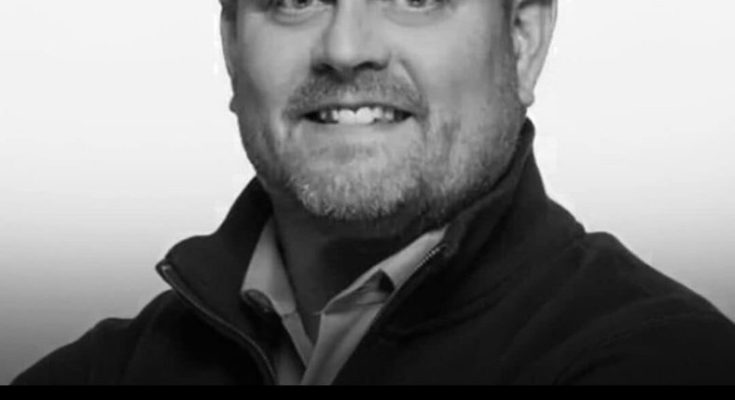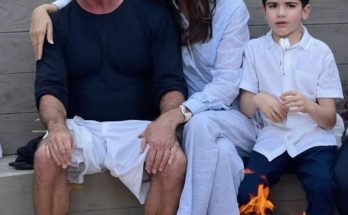The tragic death of Brian Thompson, CEO of UnitedHealthcare, has left the business and healthcare communities in shock. On the morning of December 4, Thompson was fatally shot outside the Hilton hotel in Midtown Manhattan, New York City, in what police have described as a “premeditated, targeted attack.” The chilling incident and subsequent investigation have raised numerous questions about the motive behind the killing.

The Events Leading Up to the Tragedy
Brian Thompson, 50, was reportedly on his way to an investor meeting for UnitedHealthcare when the fatal attack occurred. Surveillance footage reveals a calculated and chilling sequence of events. The gunman, wearing black jeans, a sweatshirt, and carrying a gray backpack, waited for several minutes near the hotel. As Thompson, dressed in a blue suit, walked by, the attacker approached him from behind and fired multiple rounds.
Despite Thompson falling to the ground after being struck in the calf and back, the gunman continued his assault. When the firearm appeared to jam, the attacker quickly cleared the malfunction and resumed shooting. The crime scene yielded three discharged shell casings, three live 9mm rounds, and a cell phone—evidence suggesting a carefully planned attack. Police believe the gun was equipped with a silencer, further indicating the premeditated nature of the crime.
After the shooting, the assailant fled on foot before switching to a rental e-bike and disappearing into Central Park. The NYPD is now analyzing the recovered evidence and following up on surveillance footage to track the suspect’s movements.
A Grieving Family and Unanswered Questions
Thompson’s wife, Paulette, added a chilling layer to the investigation by revealing that her husband had previously mentioned receiving threats. Although the exact details of these threats remain unclear, Paulette’s comments have deepened the mystery surrounding the motive for the killing.
“Basically, I don’t know, a lack of coverage? I don’t know details,” she said in a statement, alluding to possible professional disputes that may have escalated into violence.
In the wake of his death, Thompson’s family described him as an “incredibly loving, generous, and talented man” and requested privacy during this painful time. The loss is profoundly felt by his colleagues and the broader healthcare sector.
UnitedHealthcare’s Statement and Industry Reaction
UnitedHealth Group, the parent company of UnitedHealthcare, expressed deep sorrow following Thompson’s death. The company described him as a “respected colleague and friend,” highlighting his immense contributions to the organization and the healthcare industry at large.
In a public statement, UnitedHealth Group extended condolences to Thompson’s family and pledged full cooperation with the NYPD’s ongoing investigation. Industry leaders and colleagues have since paid tribute to Thompson’s legacy, acknowledging his transformative impact on healthcare delivery and policy.
A Stellar Career Cut Short
Brian Thompson’s professional journey exemplified excellence and leadership. After joining UnitedHealth Group in 2004, he rose through the ranks, taking on pivotal roles that shaped the company’s direction. His tenure included leading UnitedHealthcare’s Medicare & Retirement division, the largest senior health business in the U.S., and the Community & State division, which focused on providing healthcare to underserved populations.
In April 2021, Thompson was named CEO of UnitedHealthcare, overseeing nearly 140,000 employees worldwide. Under his leadership, the company expanded its reach and solidified its position as the largest provider of Medicare Advantage plans in the country.
Before his time at UnitedHealth Group, Thompson worked at PricewaterhouseCoopers LLP (PwC) for nearly seven years, gaining extensive experience in mergers, acquisitions, and regulatory audits across various industries. His academic achievements were equally impressive; as a valedictorian graduate of the University of Iowa, he received multiple scholarships and accolades for his outstanding performance.
The Investigation So Far
The NYPD has labeled the murder as a deliberate and well-planned act, but the motive remains elusive. While the recovered evidence—including shell casings, a phone, and surveillance footage—has provided significant leads, no arrests have been made as of yet.
The suspect’s ability to evade immediate capture suggests careful planning and familiarity with the area. Investigators are working tirelessly to identify the perpetrator, with Crime Stoppers offering a $10,000 reward for information leading to an arrest.
Chief of Detectives Joseph Kenny stated that the use of a silenced weapon further underscores the calculated nature of the attack. Investigators are also scrutinizing Thompson’s professional dealings to uncover potential conflicts that may have escalated to violence.
A Legacy of Excellence in Healthcare
Brian Thompson’s untimely death marks a significant loss for the healthcare industry. As a leader, he championed innovation, expanded access to care, and advocated for the needs of underserved communities. His work at UnitedHealthcare not only improved healthcare delivery but also inspired thousands of employees to prioritize patient care and social impact.
Thompson’s dedication to healthcare excellence was matched by his unwavering commitment to his team and family. His leadership extended beyond corporate objectives, fostering a culture of compassion and accountability within UnitedHealthcare.
A Community in Mourning
The loss of Brian Thompson has left a void in both the business and healthcare communities. Colleagues, friends, and industry leaders have expressed their condolences, reflecting on his exceptional career and the countless lives he touched.
His family, while mourning privately, continues to receive an outpouring of support. As the investigation unfolds, they remain hopeful that justice will be served for the man they describe as a devoted husband, father, and visionary leader.
The Path Forward
As authorities work to solve the case, Brian Thompson’s memory serves as a reminder of the profound impact one individual can have on an industry and its people. His contributions to healthcare will be remembered for years to come, and his legacy of innovation, compassion, and leadership will continue to inspire.
In the face of tragedy, the search for answers continues, driven by the hope that justice will prevail and the lessons of Thompson’s life will guide future generations. His story is a testament to the power of perseverance, dedication, and an unwavering commitment to making a difference.



